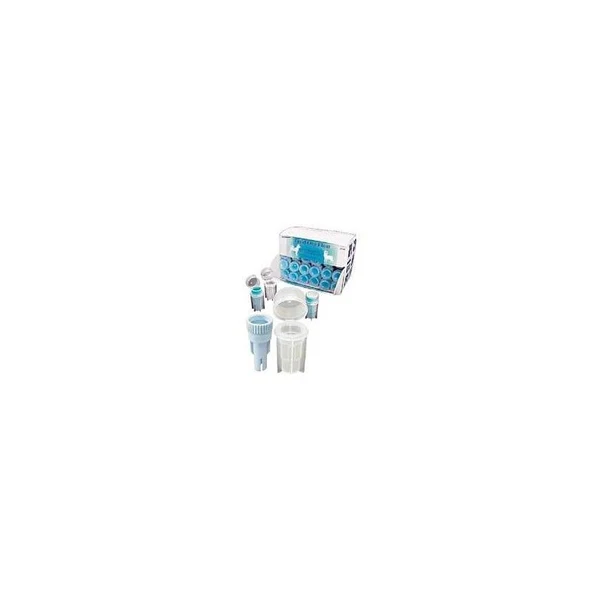
Jorvet- A two-part plastic container for use as both a fecal collection container aThe fecal floatation test is one of the most important tests that an animal hospital does on a regular basis. This test is important because it is used to determine if your pet has intestinal worms. Most veterinarians agree that this test should be performed at least once a year, more often if there has been a history of worm problems.
A small amount (approximately 1-teaspoon) of your pets stool or bowel movement is needed to perform this test. Ideally, the sample should be collected within the past 24hrs. and put in a sealed container. If you can’t bring the specimen down to be analyzed right away then it should be kept in a cool place. This will prevent the eggs in the stool sample from hatching at which point the sample is of no value for analysis.
Once at the hospital, the technician will remove the proper quantity of feces for analysis. The sample is mixed in a special container that is filled with a solution that is more dense than eggs of the worms. Complete mixing is needed to free the eggs that are trapped within the fecal material. The container has a strainer that traps large particles and other debris from floating to the surface. After approximately 20 minutes, enough time has gone by to allow any eggs present to float to the surface. The surface is then skimmed off with a cover slip and examined under the microscope.
Each type of worm lays eggs that are characteristic for the species. Not all worms shed eggs, such as the tapeworm for example and not all worms shed eggs all the time, such as the whipworm. For this reason the overall accuracy of the fecal test is 80%. Submitting multiple samples at various times will improve the accuracy significantly. When no eggs are seen under the microscope that test is called negative, however, it would be more accurate to say that no eggs were identified.
As is the case with most tests that are performed, it is necessary to look at the results in context of the symptoms that are expressed and the physical exam findings of the whole animal. Sometimes your veterinarian will recommend worming your pet on “general principles” even though the fecal floatation test shows no eggs present. This can be a way to more positively remove any likelihood of worms being present.nd a flotation exam container. A simple and hygienic way to collect fecal matter.
